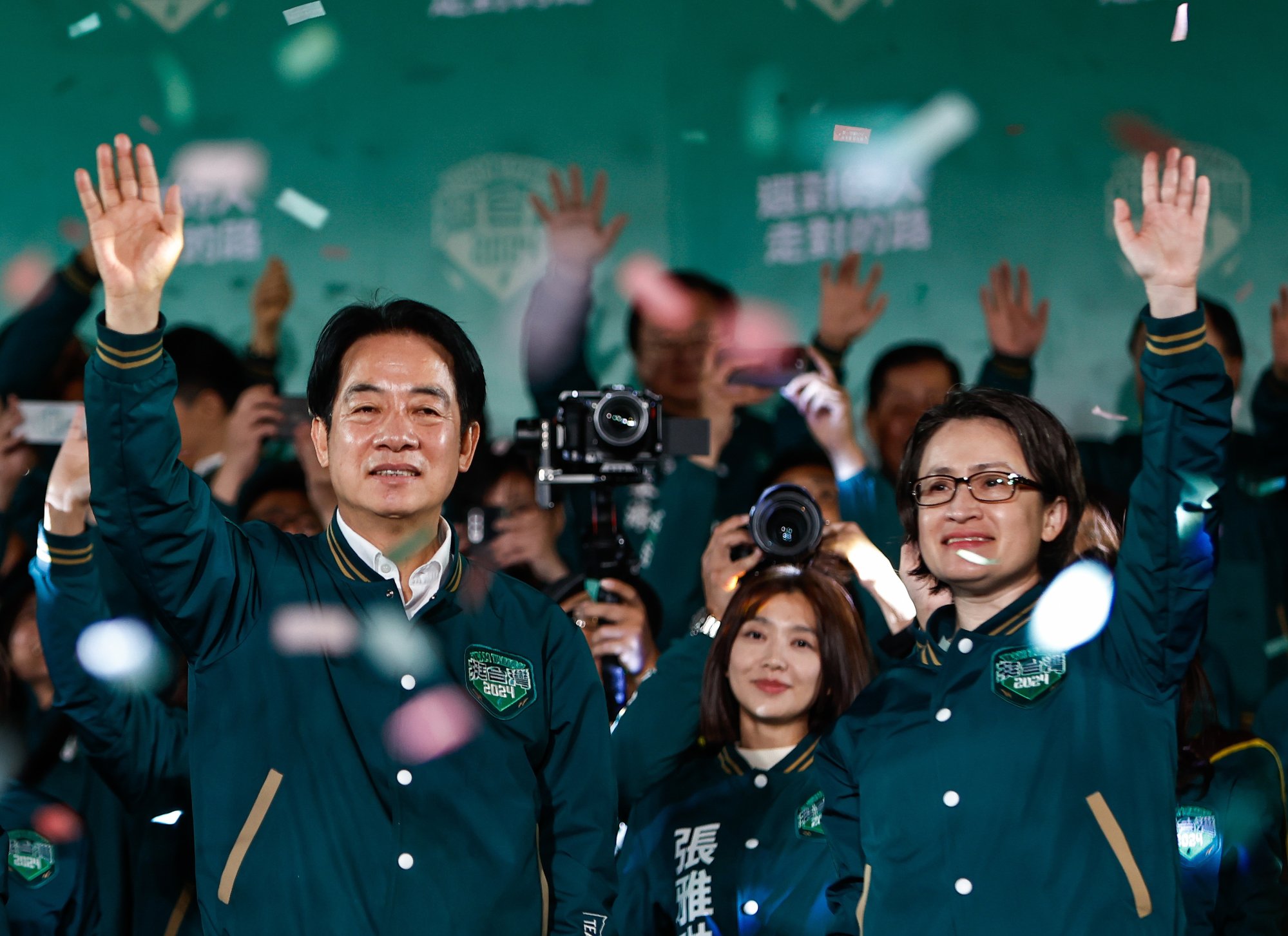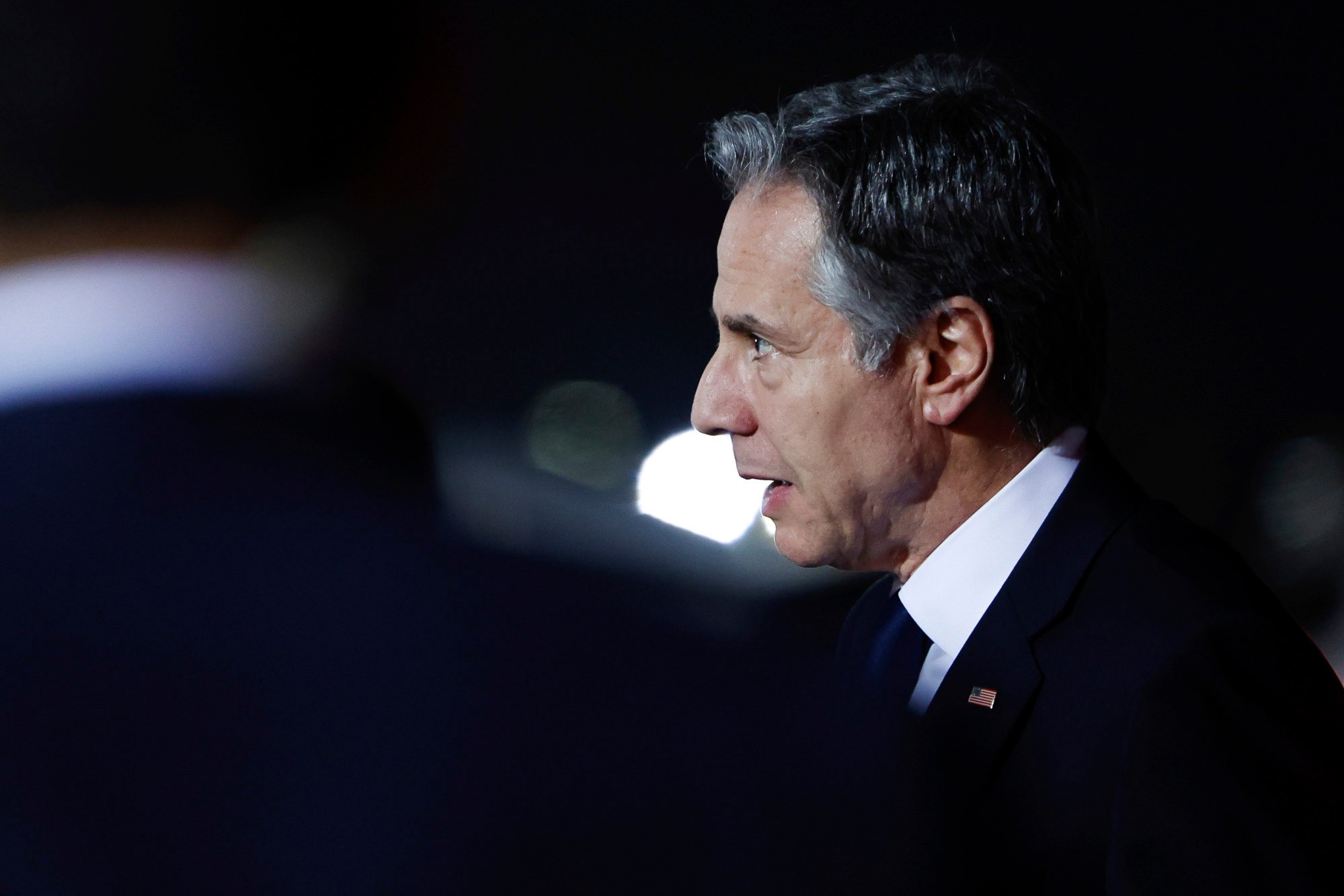“We look forward to working with Dr. Lai and Taiwan’s leaders of all parties to advance our shared interests and values, and to further our long-standing unofficial relationship, consistent with the US one-China policy,“ Blinken said. “The United States is committed to maintaining cross-strait peace and stability, and the peaceful resolution of differences, free from coercion and pressure.”
Blinken also gave a shout out to the democratic process that saw Lai of the independence-leaning DPP elected by 40 per cent compared to 33.5 per cent for his main rival Hou Yu-ih with the Kuomintang and 26.5 per cent for Ko Wen-je from the upstart Taiwan People’s Party. This is the first time any party has won three consecutive terms.

“We also congratulate the Taiwan people for once again demonstrating the strength of their robust democratic system and electoral process,” Blinken said. “We are confident that Taiwan will continue to serve as an example for all who strive for freedom, democracy, and prosperity.”
Taiwan election: Lai’s victory risks further tensions with Beijing
Taiwan election: Lai’s victory risks further tensions with Beijing
Like most countries, the US does not recognise Taiwan as an independent state. But Washington maintains robust unofficial ties with Taipei, opposes any attempt to take the self-governed island by force and is committed to supplying it with weapons – positions that anger Beijing.
“The partnership between the American people and the people on Taiwan, rooted in democratic values, continues to broaden and deepen across economic, cultural, and people-to-people ties,” Blinken added.
The US sought in recent weeks to walk a fine line, stating repeatedly that it had no favoured candidate but would work closely with whomever was elected, even as China has watched warily for any sign that Washington was tipping the scales in favour of the DPP, deeply distrusted by Beijing.
Hsiao is well liked in Congress and the White House and is likely to be a key bridge between the island and Washington. The daughter of an American mother, she is also the first mixed-race candidate to hold the office.

In recent weeks, China has threatened trade sanctions, expanded cyber campaigns, over flown balloons and increased fighter jet and naval exercises around the self-governing island, which Taiwan authorities have characterised as intimidation tactics aimed at helping elect the KMT.
Chinese officials also repeatedly framed the vote as a choice between “war and peace”, with Lai painted as a separationist who would lead Taiwan into conflict.
But analysts say China could take some comfort in the electoral results in the 113-member legislature, which failed to hand the DPP a majority, making it more challenging to govern or pass independence-leaning policies.
On Saturday, members of the US House Foreign Affairs Committee, including its chairman, Republican Michael McCaul from Texas and its lead Democrat, Gregory Meeks from New York, also offered their congratulations to Lai.
“Today’s election is another milestone for Taiwan’s vibrant and robust democracy,” the committee said in a statement, congratulating the Taiwanese people on their eighth democratic presidential election since 1996 after decades of authoritarian rule and martial law.
“We condemn Beijing’s attempts to influence the elections through disinformation and military pressure and applaud the people of Taiwan for upholding democratic ideals,” the committee added. “We look forward to working with President-elect Lai and Vice-President-elect Hsiao to enhance the US-Taiwan economic, cultural, and defence relationship.”
As it happened: Lai wins Taiwan presidential election but DPP loses legislature
As it happened: Lai wins Taiwan presidential election but DPP loses legislature
At the same time, the US has blocked exports of high-end semiconductors and other technologies it sees as helping strengthen the People’s Liberation Army, policies that China decries as a “Cold War” bid to frustrate China’s economic development.
In his statement Saturday, Blinken sought to reassure China that it remained guided by the Taiwan Relations Act, the three Joint Communiques, and the Six Assurances that have defined the US-China-Taiwan dynamic since Washington and Beijing established formal diplomatic relations in 1979.
Beijing strongly opposes US military aid to the island. Under the Taiwan Enhanced Resilience Act passed in 2022, Washington is authorised to extend up to US$2 billion annually in military grant assistance to Taipei between 2023 and 2027.
“Whatever changes take place in Taiwan, the basic fact that there is only one China in the world and Taiwan is part of China will not change,” the Taiwan Affairs Office of the State Council said in a statement from Beijing.
“We believe that the international community will continue to adhere to the one-China principle, and understand and support the Chinese people’s just cause of opposing “Taiwan independence” separatist activities and striving to achieve national reunification,” it added.

